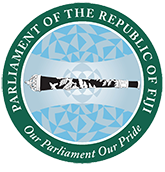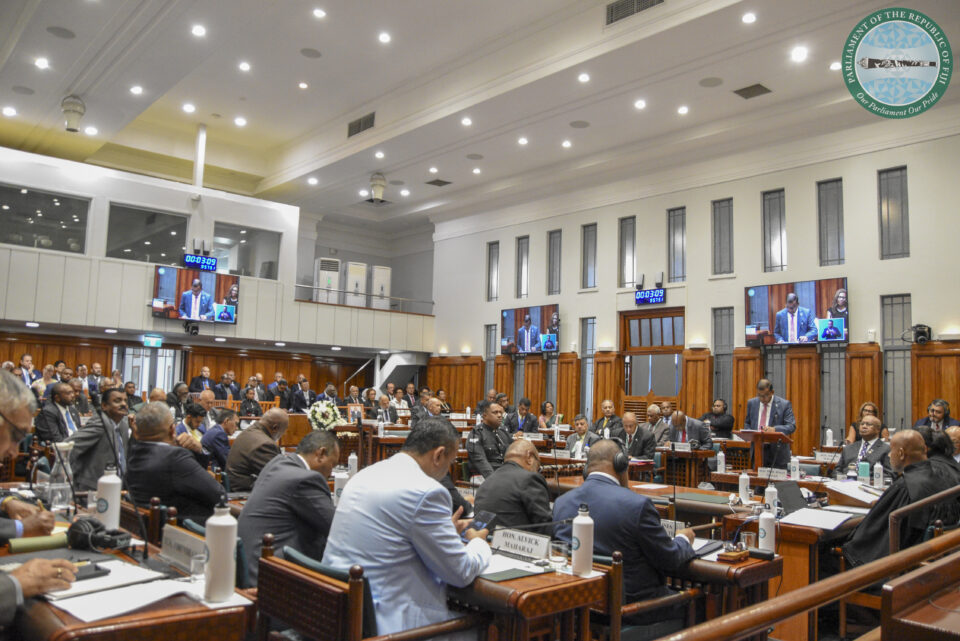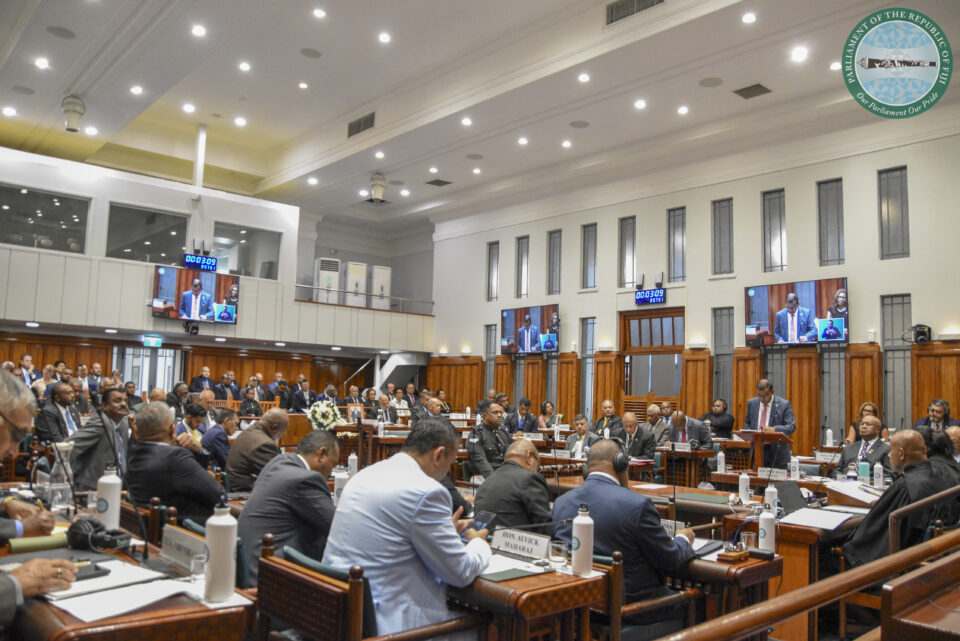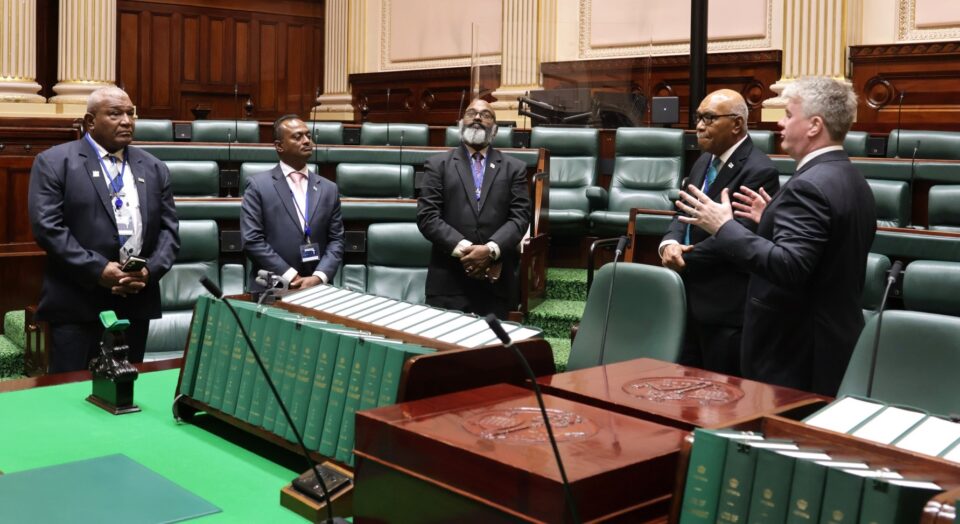Budget briefing workshop for CSOs: Parliament and the National Budget
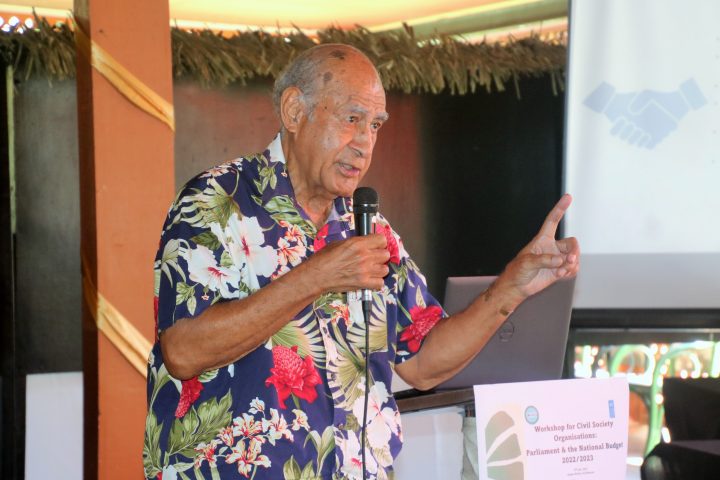
Date: Friday, 22 July 2022
Venue: Fiji Museum Ginger Kitchen, Suva
- Representatives Of Civil Society Organisations
- Our UNDP Partners
- Staff of the Parliament Secretariat
- Ladies And Gentlemen
Good Morning, Ni sa Bula Vinaka, Asalaam Aleykum, Namaste and Welcome.
It is indeed a pleasure to see you all here this morning. And I bid you all a warm welcome.
Our apologies for the late invitation notice. We had encountered some challenges regarding the timing and venue for this important annual event. It has been a very busy week for us.
Thank you for accepting your parliament’s invitation to this information sharing session on the 2022-2023 Budget this morning.
This annual workshop is an initiative of the Parliament Secretariat in partnership with UNDP to extend the budget briefings that is normally provided for members of parliament to leaders and representatives of CSOs. This has been going on since 2017 and I wish to thank the UNDP for its continued support towards the workshop.
We missed 2021 due to the restrictions of the COVID-19 pandemic and we were not sure whether we would be able to hold one this year. But thankfully things are slowly returning to normal.
This workshop for CSOs is not a one-off event. We will be increasing our interaction with civil society groups as we finalise our revised community engagement and civic education strategy for 2022-2025.
This is a continuation of our past efforts to strengthen parliamentary openness and inclusivity in the parliamentary processes such as the passing of the national budget, legislative reviews and oversight.
Like previous workshops, today you will receive an independent, factual and impartial information on the 2022-2023 national budget based on the budget announcement and accompanying documents.
Most of the information being shared with you today is normally provided to members of parliament during the budget process. These and other Non-budget related briefings are part of the services that the secretariat provides to MPs in the course of their parliamentary work.
This support to MPs is important as it strengthens their oversight scrutiny work when it comes to the budget, legislation, review of government services and so forth.
The information does not, however, provide policy advice on the merits, or feasibility of budget proposals. This is in line with the practice of other parliaments globally to maintain the independence of the institution and ensure the neutrality of the Parliamentary Secretariat.
In other, larger and better-resourced parliaments, a budget costing and information service is sometimes provided by a ‘parliamentary budget office’ also known as a PBO. A staff from one such PBO is part of the budget analysis team for this year’s exercise.
In the absence of a PBO, the Fiji Parliament, with the support of the UNDP Fiji parliament support project, has facilitated the budget information service through staff resources available in parliament such as the research and committee teams.
In partnership with the UNDP, we have been able to tap into our partnerships with our inter-parliamentary network in the Australian federal and state parliaments, in the New Zealand Parliament and in other Pacific Island legislatures to provide support towards this time-sensitive exercise.
This initiative is not limited to Fiji but has become a regional one since we had the pilot here in 2016. The budget briefing exercises has moved around the pacific since then, from Fiji to the Solomon Islands, Tonga, Papua New Guinea and Vanuatu. It is today known as the Pacific Floating Budget Office and is a great example of South-South interparliamentary cooperation and sharing of good practices.
For civil society, you play an important role in conveying information on the budget process to your constituents, interest groups and local communities. You also have an important facilitator role in representing the needs, sentiments and aspirations of citizens to their representatives in Parliament. CSOs can help improve budget policies by providing information on public needs and priorities through their connections with citizens, communities, and sectors.
Apart from Parliament and parliamentarians, CSOs and other stakeholders also can play an important role in holding the executive accountable for how public resources are utilized. And this is a continuous endeavor from pre-budget to post-budget and throughout the lifetime of any government.
This workshop is not only about information-sharing, but also to build capacity amongst CSO representatives on the budget process in parliament. Beyond this workshop, I do encourage you to visit parliament and get in touch with the secretariat for information on parliament processes or if you need to have contact with Members of Parliament. The door is always open.
As I conclude, I would like thank our development partners – the UNDP, and the governments of Australia and New Zealand for their continued assistance to the Fiji Parliament Support Project (FPSP), and their support of this important initiative of engaging civil society organisations in the public budget process.
I would also like to acknowledge the contribution of our partner parliaments – the Australian Federal Parliament, and the parliaments of New Zealand, Tonga and the state parliament of Victoria – our twin parliament – who have lent us their senior parliament staff to work alongside the Fijian parliament staff in producing these budget briefs.
It is my hope that even though the information to be shared with you today, as earlier explained, does not provide policy advice on the merits or feasibility of proposals, that you will still find the discussions very useful and a helpful aid, in your own understanding of the content and the processes it is normally taken through in parliament.
In closing, I wish you all a very informative and participatory session, and I thank you most sincerely for taking an interest in the work of your parliament.
Thank you. Vinaka Vakalevu. Sukran. Bahoot Dynavaad.
— Ends —

